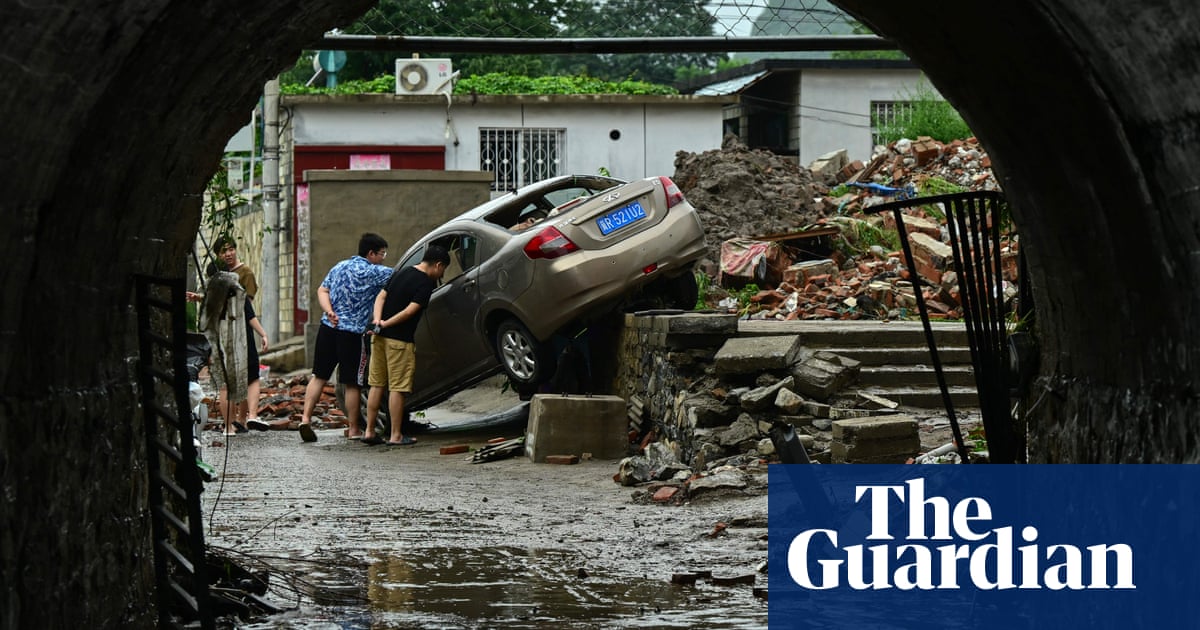
Rains that pummelled Beijing in recent days were the heaviest since records began 140 years ago, the city’s weather service has said, as China faced accusations that it had undermined key climate talks with other countries.
Storm Doksuri, a former super typhoon, swept northwards over China after hitting southern Fujian province last week, following its battering of the Philippines.
The average rainfall for the entire month of July was dumped on Beijing in just 40 hours, with heavy rains pummelling the capital and surrounding areas since Saturday.
“The maximum [amount] of rainfall recorded during this storm, which was 744.8 millimetres, occurred at the Wangjiayuan reservoir in Changping,” the Beijing Meteorological Service said, adding it was the “heaviest rainfall in 140 years”.
The extreme weather comes as China’s foreign ministry denied reports that it obstructed discussions on tackling climate change at G20 meetings in India last week, calling the accusations “completely inconsistent with the facts”.
The group of major countries failed to issue a joint communique or deliver any new pledges after three days of discussions on issues like cutting emissions and fossil fuel use. The group acknowledged in a statement after their talks that measures to address climate change were “insufficient”.
Members of a European delegation said China and oil-rich Saudi Arabia had backed away from making commitments at the meetings.
China’s foreign ministry said in a statement it “regrets” the failure to reach an agreement at the meetings, which was caused by “geopolitical issues” brought up by other countries “for no reason”.
China, which accounts for more than half of global coal production, has bristled at calls to do more to cut greenhouse gases, saying its historical and per capita CO2 emissions are still lower than those of the United States.
The heavy rain – which has killed 20 people in Beijing – is the latest bout of extreme weather from around the world to raise fears about the pace of global warming.
In neighbouring Hebei province, where more than 800,000 people were evacuated, nine people were killed and six are missing, according to local media. The country is now on alert for the arrival of typhoon Khanun, the sixth such storm of the year, as it nears China’s east coast.
Scientists say that the extreme weather that China has been experiencing – including record temperatures this summer – is being exacerbated by the climate crisis.
China has pledged to bring its emissions to a peak before the end of the decade and become carbon-neutral by 2060.
But despite building record levels of new clean energy capacity, its fossil fuel consumption has continued to rise, with no plans to start cutting coal use until 2026.
Reuters and Agence France-Presse contributed to this report


